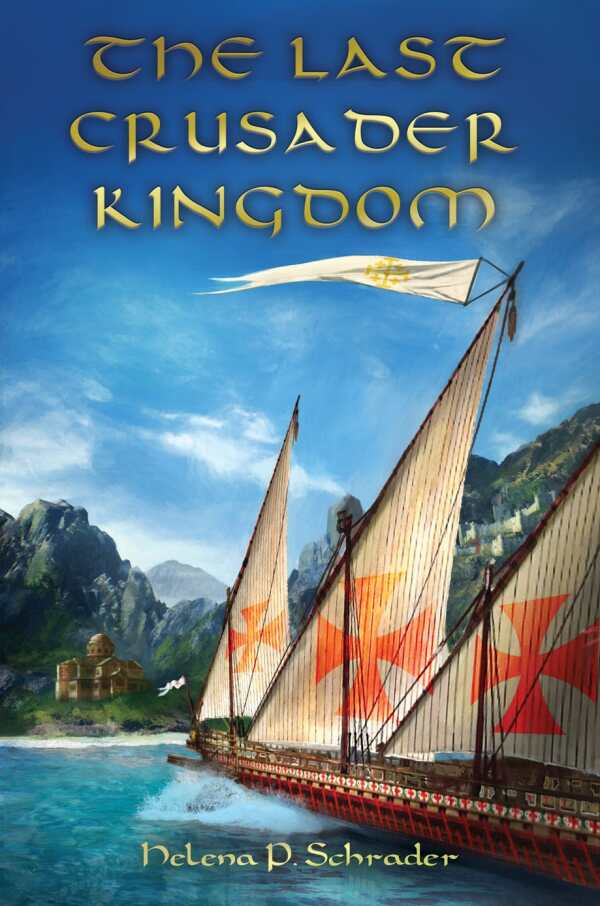The Last Crusader Kingdom
Dawn of a Dynasty in 12th Century Cyprus
The Last Crusader Kingdom’s ultimate seduction is the enchantment of Cyprus itself.
The Last Crusader Kingdom by Helena P. Schrader is a complex, intriguing historical novel. Taking place after the events in Schrader’s Jerusalem trilogy, it expands its scope to twelfth-century Cyprus.
Cyprus is in turmoil, torn apart by the Greeks, the conquering King Richard, and the Crusades. Anger over Templar rule, dissatisfaction with a weak, ill ruler, and unrest in Jerusalem feed the turmoil. Bloodlines and marriage ties among different factions escalate revolt and bloodshed, while those who love Cyprus attempt to negotiate peace.
The politics of the novel are complicated, highlighting the enduring fight for power in the name of religion, along with the need for stability and basic human safety. Detailed charts and glossaries help with navigating the novel’s vast cast of characters. In a remarkable way, the narrative emphasizes the frequency and necessity of long-range travel between Jerusalem, Cyprus, and the continent for political negotiations.
Young John d’Ibelin is the primary protagonist. He is the eldest son of the wily Balian d’Ibelin, who is also a driving force in the book. John serves as squire to Aimery de Lusignan, the eventual king of Cyprus, traveling with him when Aimery is forced to resign as constable of Jerusalem because Henri de Champagne, consort to the queen of Jerusalem, doesn’t trust him. At the heart of the book are John’s loyalty to Aimery and his growing maturity as he realizes how to humanely handle the people involved in conflicts, rather than treat them as nameless, faceless pawns.
The point of view shifts often. This sometimes happens even within scenes, and it can be disorienting, as are frequent information dumps as characters travel from place to place. The book often reads more as a social history than a novel driven by a plot and characters.
The story is laden with terrific sensuous detail. Sights, textures, tastes, sounds, and especially scents, both wonderful and nasty, give the book a visceral element. Cyprus is made into a living, breathing entity, almost an additional character in the book. It is described as fascinating, beautiful, and regal, making it easy to understand why so many fought over it so contentiously, and why those who lived there loved it so deeply.
Set within the episodic structure of the story, Cyprus survives, no matter the turmoil happening on its shores. It seduces and intrigues, as factions plot both on and off its shores.
The depth of historical detail makes this a worthwhile read, but The Last Crusader Kingdom’s ultimate seduction is the enchantment of Cyprus itself.
Reviewed by
Eva Schegulla
Disclosure: This article is not an endorsement, but a review. The publisher of this book provided free copies of the book and paid a small fee to have their book reviewed by a professional reviewer. Foreword Reviews and Clarion Reviews make no guarantee that the publisher will receive a positive review. Foreword Magazine, Inc. is disclosing this in accordance with the Federal Trade Commission’s 16 CFR, Part 255.

